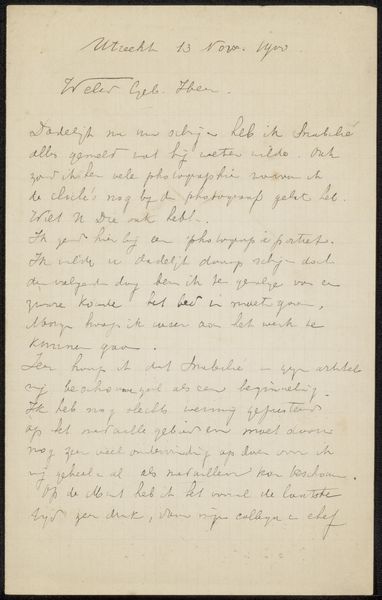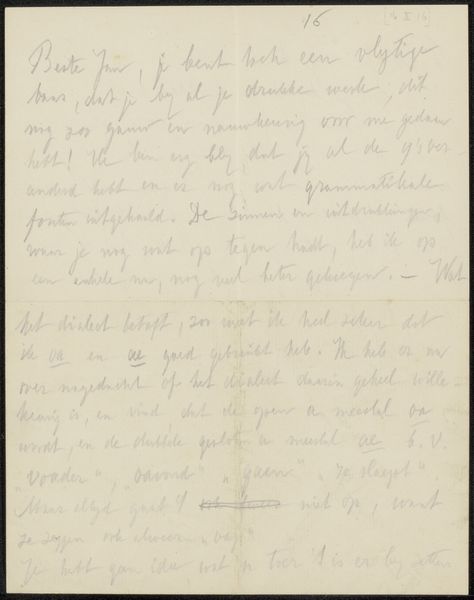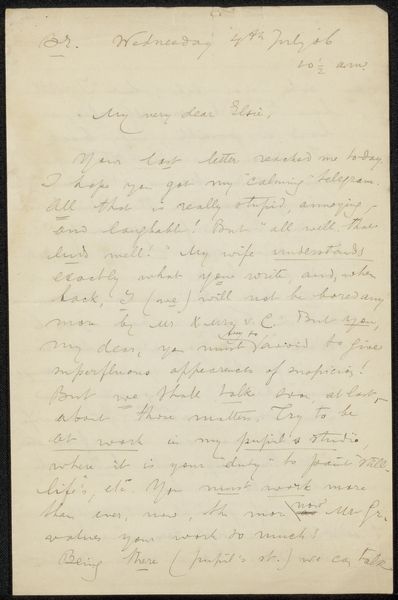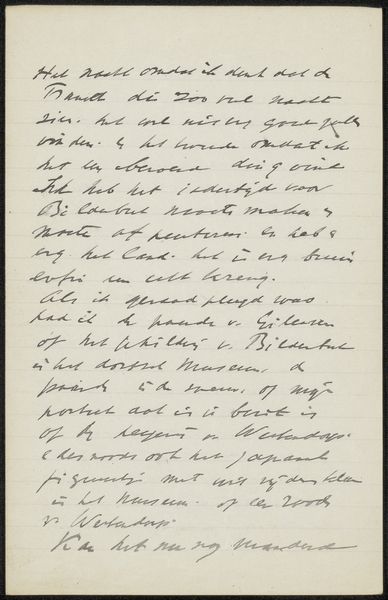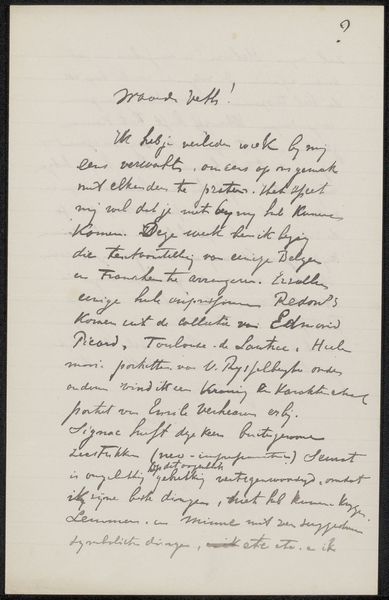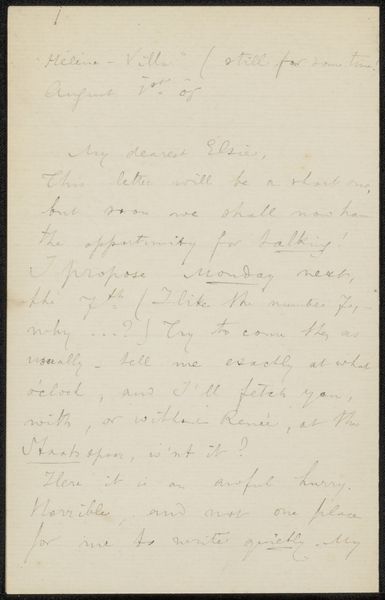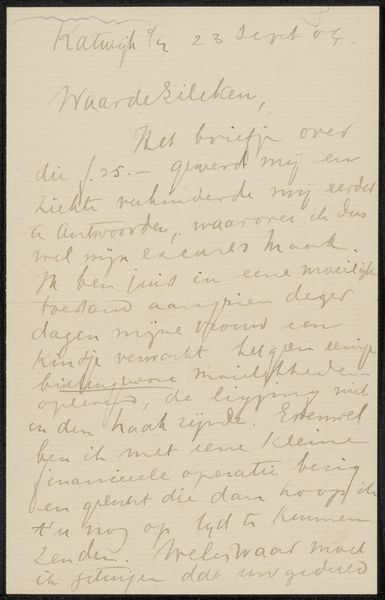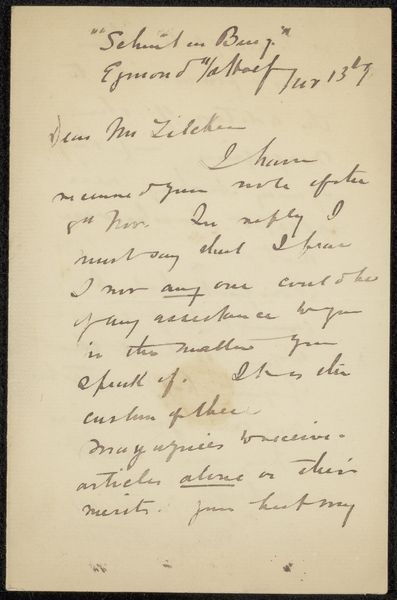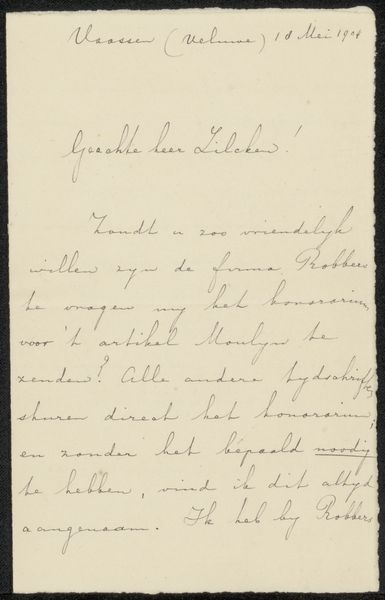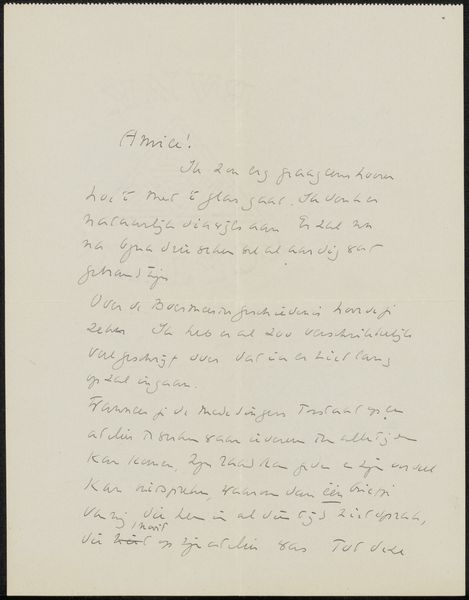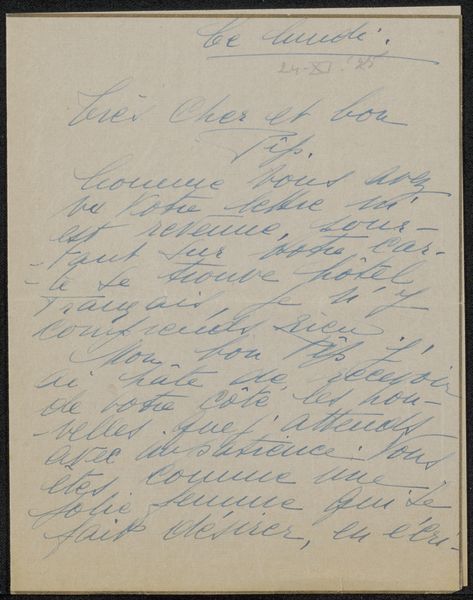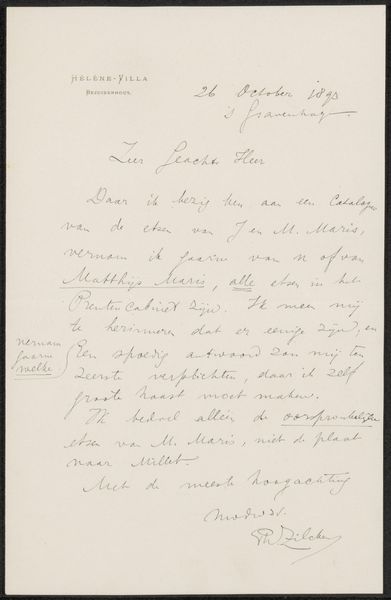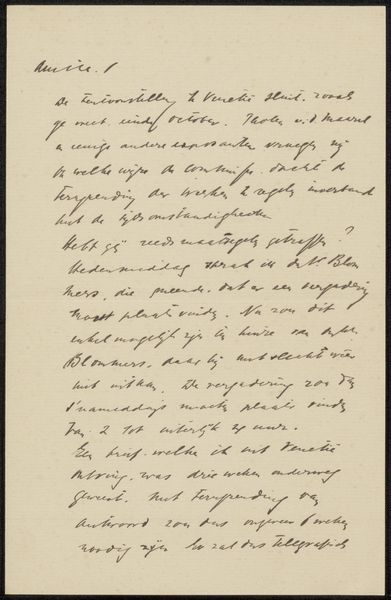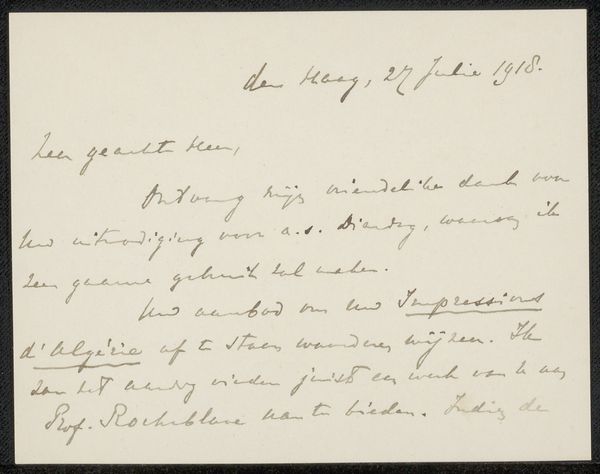
drawing, paper, ink, pen
#
portrait
#
drawing
#
hand-lettering
#
ink paper printed
#
hand drawn type
#
hand lettering
#
paper
#
personal sketchbook
#
ink
#
hand-drawn typeface
#
intimism
#
pen-ink sketch
#
pen work
#
sketchbook drawing
#
pen
#
sketchbook art
Copyright: Rijks Museum: Open Domain
Curator: Here we have "Brief aan Philip Zilcken" by Marie Metz-Koning, potentially created between 1888 and 1905. It’s rendered in pen and ink on paper, showcasing Metz-Koning’s hand-lettering skills. What are your immediate impressions? Editor: Well, it feels deeply personal. It exudes the intimacy of a handwritten note, yet the flowing script also conveys a formal elegance. The pale ink almost whispers from the paper. Curator: Absolutely. The art of letter writing during this era was steeped in social and cultural significance. Considering Marie Metz-Koning's social circles, the recipient, Philip Zilcken, was a well-known artist, critic, and art historian, suggesting a professional connection. The letter serves as a primary source into turn of the century dynamics between artists in Europe, offering insights on networking, patronage, and the circulation of artistic ideas through correspondence. Editor: The very act of committing thoughts to paper in such a careful hand suggests a level of consideration, a slowing down of time. We now communicate so rapidly. It evokes the emotional depth carried in these deliberate strokes of ink, so what can we make of this “reproducties van de schilderijen,” this reproduction of paintings the writer so yearned for? Were these depictions meant for inspiration, influence? Or does the script symbolize something more? Curator: It begs questions about artistic creation and reception. Metz-Koning claims in this “Brief” that she could not have a opinion regarding a painting, as “Ik die zag”, without having laid eyes on it. Its not just about the image itself, its about the artist's intention and the means by which art reaches its audience, both then and now in an era of digital distribution. Editor: I notice the slight imperfections, the subtle tremors in the lines, signs of the human hand guiding the pen. Even these details, contribute to the work's feeling of intimacy and immediacy. Curator: Precisely, such close readings of personal writings can allow us a glimpse into how art practices are socially mediated. It shows the crucial role of dialogues and interpersonal relationships for artistic formation. Editor: It makes you wonder, doesn't it? Who else shared this missive, and how were her words perceived by her contemporaries? Curator: Exactly! The simple act of handwriting, the careful application of ink, invites contemplation. Its cultural value speaks for itself. Editor: Definitely. The cultural memory that such a small piece holds is enormous.
Comments
No comments
Be the first to comment and join the conversation on the ultimate creative platform.
